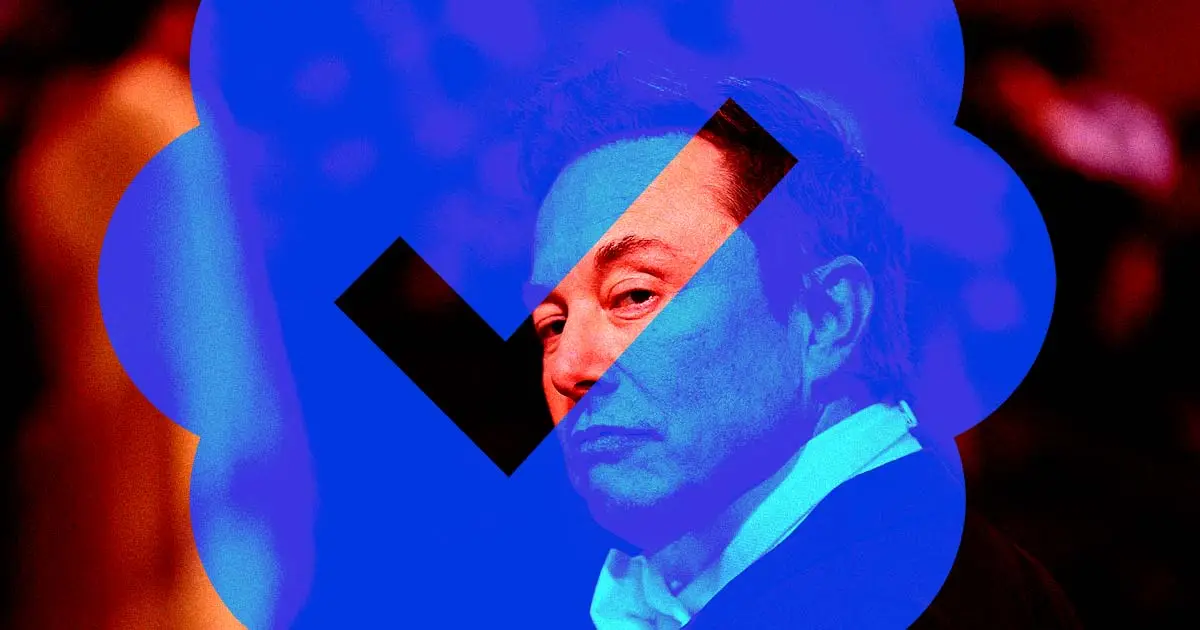In late 2022, long before multi-hyphenate billionaire Elon Musk renamed Twitter to X, rumors swirled that he was getting ready to shake up the platform’s verification system.
His proposal: charge each subscriber for the privilege of being verified without ever doing the homework of actually verifying their identity — a short-sighted and ultimately disastrous decision that Musk reportedly regretted almost immediately.
As detailed in an upcoming book titled “Character Limit: How Elon Musk Destroyed Twitter,” reporters Ryan Mac and Kate Conger lay out in detail how Musk’s blue checkmark scheme, called Twitter Blue, collapsed in on itself and compounded the company’s financial crisis. (The pair recently published a story adapted from their new book in the New York Times.)
The 2022 US midterm elections took place on November 8, a day before Musk started charging users for a blue checkmark.
When the switch was made, all hell broke loose, with countless newly verified accounts masquerading as politicians, celebrities, and companies. One account parading as Nintendo shared a viral image of Super Mario giving the finger.
Advertisers, who had gotten wind of the mayhem, started reaching out to Twitter’s sales teams, threatening to pull their ads. According to Mac and Conger’s sources, Nike executives threatened to never advertise on the platform again.
And Musk was terrified of the prospect of losing hundreds of millions of dollars in advertising revenue.
“Turn it off,” he reportedly told an engineer. “Turn it off!”
Twitter Blue, a $8-a-month subscription service, was unlikely to stem all the bleeding. The company was already dealing with considerable debt. Musk had to borrow around $13 billion for his doomed $44 billion acquisition.
And business hasn’t exactly looked up since Twitter Blue launched just under two years ago. Even more advertisers have abandoned the platform over Musk’s failure to reign in a tidal wave of disinformation and hate speech — something he’s been actively contributing to himself.
Just last week, the Wall Street Journal called the acquisition the “worst buyout for banks since the financial crisis,” with banks unable to offload their debt without incurring major losses.
Musk has bounced back and forth between telling advertisers to literally “fuck” themselves and begging them to return. Earlier this month, Musk sued a global advertising alliance out of existence, accusing it of conspiring against him.
Twitter has also gone through several rounds of mass layoffs, with Musk imploring them to come back weeks later.
In short, Musk’s ill-informed takeover has left a major hole in his reputation as a successful entrepreneur. His incompetency when it comes to running a social media platform has been on full display.
Meanwhile, X-formerly-Twitter is still rife with impersonators and scammers taking advantage of Musk’s poorly thought-out Twitter Blue scheme.
And engineers could only helplessly watch as the billionaire brought down the walls around them.
“It was such an obvious train wreck, that the main job of everyone on the team was to make sure it was the safest train wreck possible,” one Blue worker wrote in a journal, as quoted by Mac and Conger.



deleted by creator
It was that or face the SEC for swvurities fraud. He was trying to blatantly pump and dump twitter, got caught red handed, and dogured he could pretend to want to buy it, pay a $1 billion fine for reneging, and moving on with his life.